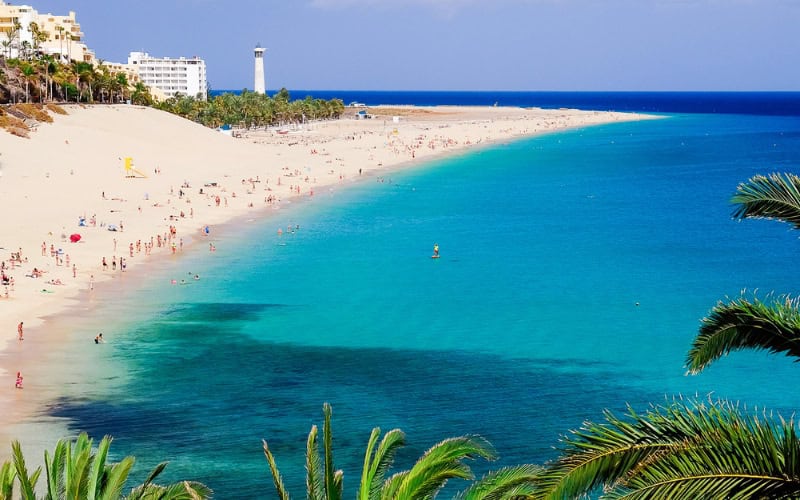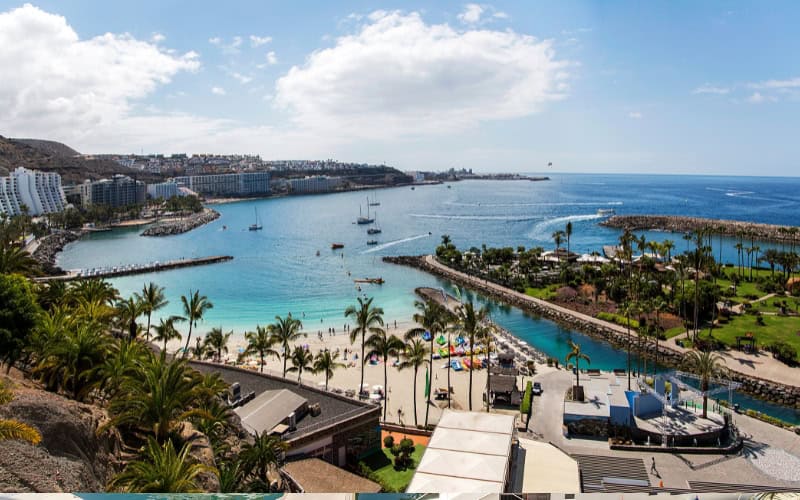We can all agree that Spain offers a range of enticing destinations for expats, but the Canary Islands stand out as being somewhere special. With its year round mild climate, breathtaking landscapes and exciting culture, it’s easy to see why this unique archipelago has captured the hearts of expats seeking a new change in their lives.
But, it’s not simply a case of packing your bags and heading off to your island of choice. You need to think about when exactly you’re going to move, and some times of year are better than others.
What Time of Year is Best to Move to the Canary Islands?
Relocating to the Canary Islands is a dream for many, but choosing the right time of year to make the move can greatly impact your experience. There are a variety of things that play a significant role in determining the best time to relocate to this beautiful part of the world. From weather patterns to peak moving seasons, and even school enrollment, there are several factors to keep in mind when planning your move.

Seasonal Considerations
First and foremost, it’s important to consider the weather when deciding on the ideal time to move to the Canary Islands. With its subtropical climate, the archipelago experiences warm temperatures throughout the year, making it an attractive destination for those seeking blue skies and sunshine. For example, with Fuerteventura’s climate, you can expect an average temperature of around 22 degrees year round.
However, there are distinct differences between the seasons. Summer is the hottest and driest period, and winter brings slightly cooler temperatures and the possibility of sporadic rainfall. Depending on your preferences, you might want to plan your move during the milder winter months, or you might want to embrace the warmth of summer.
The Canary Islands Peak Moving Season
Peak moving season in the Canary Islands typically coincides with the summer months, particularly between June and August. During this time, many families choose to relocate to the islands. As a result, moving companies and estate agents are likely to experience higher demand, potentially leading to increased prices and limited availability. If you move in the summer months, you might find that the cost of removals to the Canary Islands to be slightly more. If possible, consider scheduling your move during the seasons of spring or autumn to avoid the crowds and to secure better deals on transportation and accommodation.
Starting School in the Canary Islands
For families with school aged children, timing your move to coincide with the start of the school year is crucial. In the Canary Islands, the academic year typically begins in September, with schools reopening after the summer break. By planning your move to align with the start of the school year, you can ensure a smoother transition for your children, allowing them to settle into their new environment and establish connections with classmates from the outset. They can finish one school year in the UK, and then start the new school year abroad. Additionally, moving before the school year begins gives you time to explore the islands and familiarise yourself with your new surroundings before the school routine begins.
Does the Best Time to Move to the Canary Islands Vary by Island?

The best time to move to the Canary Islands may vary slightly depending on the specific island that you are choosing the move to. Once you have decided where in the Canary Islands you are moving to, you need to think about the best time to move for that specific location. While the archipelago as a whole experiences a subtropical climate with relatively mild temperatures year round, there are subtle differences in weather patterns and seasonal variations between the islands.
Tenerife and Gran Canaria, the two largest islands, tend to have more stable weather conditions and milder temperatures compared to the smaller, more remote islands. This means that you can move at any time, knowing that you’re highly likely to have good weather for your move. These larger islands also offer a wider range of amenities and services, making them popular choices for expats and families looking to relocate.
The smaller islands – such as La Gomera, El Hierro and La Palma – tend to experience slightly cooler temperatures and more rainfall, particularly in the winter months. If you want to move when the weather is at its best, it’s a good idea to organise your relocation for the warmer summer months. As these islands offer a quieter and more laidback lifestyle, they may be better suited for individuals looking for a more secluded and tranquil environment.
Deciding When to Relocate to the Canary Islands
Job Market
Before moving, research the job market on the Canary Islands, as employment opportunities may vary depending on your industry and skillset. Consider factors such as job availability, if there’s a demand for your profession, and your potential income levels to determine if the timing is right for your career aspirations. If your job is in high demand, you shouldn’t struggle to find a role regardless of when you move, but this isn’t always the case.
Housing Market
It’s a good idea to explore the housing market in the Canary Islands to understand rental and property prices, availability and housing options across the different islands. After all, you don’t want to move to the Canary Islands, only to find that there are very few properties for you to choose from. When there’s a lot of competition on the housing market, house prices skyrocket and you could find yourself paying more than you budgeted for. Factors such as location, amenities and proximity to essential services may also influence your decision on when to relocate.
Visa and Legal Considerations
You need to ensure that you understand the visa requirements and legal considerations for living and working in the Canary Islands. Depending on your nationality and residency status, it’s likely that you will need to obtain a visa or residency permit before relocating. This is the case, even if you are moving from the UK, as visa requirements have changed post-Brexit. Research the necessary paperwork, application processes and any legal obligations to ensure a smooth transition. It’s also important to determine how long your visa is valid for, as you might need to enter the Canary Islands before a certain date.
Personal Factors
Before you move, take into account any personal factors that could impact the ease of your move. For example, family commitments, education, healthcare and lifestyle preferences. You might want to wait until the end of a project at work, after a family wedding or after a big celebration. You might want to wait until your children have finished exams at school, or move before they move up an academic year.
Consider how factors such as climate, outdoor activities, social opportunities, and quality of life align with your personal needs and priorities. If you are moving to the Canary Islands in search of sunshine, you might want to move during the summer months, as it would enable you to throw yourself into beach life from the moment you arrive.
Research and Preparation
It’s always a good idea to conduct thorough research and preparation to ensure a successful relocation to the Canary Islands. This means familiarising yourself with the local customs, learning a bit of the language, understanding the healthcare system and finding out who you need to tell before moving abroad. Create a checklist of tasks – such as organising finances, securing accommodation and transferring utilities – to streamline the moving process and minimise stress.
Moving to the Canary Islands as a Temporary Resident – Brexit Considerations

Before the UK’s departure from the EU, British citizens could enjoy unrestricted travel between the UK and the Canary Islands. Expats had the freedom to visit and stay in the Canary Islands for as long as they wanted to, but things have changed since then. Now, non-EU citizens without permanent residency in Spain, can only stay on the islands for 90 days.
The ‘90 Day Rule‘ states that expats can only stay in Spain for up to 90 days within a 180 day period, or a maximum of around 180 days per year. This includes all of Spain, including the Canary Islands. This means that you can spend approximately two periods of 90 days living in Spain annually, and any longer requires you to have a visa. This is something to think about when you are planning your permanent move to the Canary Islands.
Start Planning Your Move to the Canary Islands Today

Regardless of when you move to the Canary Islands, it’s important to move at a time that works for you. There’s a lot of excitement that comes with moving to a new country, but it can also be a hugely daunting process, and it’s important to move at a time that feels right.
Once you have decided when you are making your big move to the Canary Islands, it’s time to start planning the logistics of getting there. This is where we come in. At United International Removals, our experts are on hand to ensure that your belongings get from A to B safely, securely and efficiently. To find out more about our removals services and how we can help you with your move to the Canary Islands, get in touch with us today.

